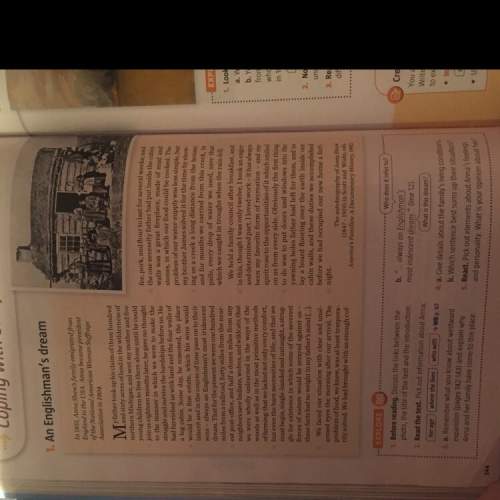Read this excerpt from the conclusion of Elie Wiesel's "The Perils of
Indifference" speech:
D...

English, 13.06.2020 21:57 darkdestroyer0888
Read this excerpt from the conclusion of Elie Wiesel's "The Perils of
Indifference" speech:
Does it mean that we have learned from the past? Does it
mean that society has changed? Has the human being
become less indifferent and more human? Have we really
learned from our experiences? Are we less insensitive to
the plight of victims of ethnic cleansing and other forms of
injustices in places near and far? Is today's justified
intervention in Kosovo, led by you, Mr. President, a lasting
warning that never again will the deportation, the
terrorization of children and their parents, be allowed
anywhere in the world? Will it discourage other dictators in
other lands to do the same?
Which statement best describes Wiesel's use of a rhetorical device?
A. Wiesel ends his speech with several rhetorical questions to leave
the audience with something to think about.
B. Wiesel uses several metaphors and similes in order to help his
audience better understand the suffering he endured.
C. Wiesel presents himself as an expert on his topic in order to help
the audience find him more trustworthy.
D. Wiesel asks rhetorical questions with the expectation that his
audience, the president of the United States, will answer them

Answers: 1


Other questions on the subject: English

English, 21.06.2019 14:30, ahaug4869
Will give choose the answer. (the white umbrella) review the detail. miss crosman praises eugenie's piano skills. which best explains how this action develops the theme? a: it create the image that eugenie is perfect. b: it shows that miss crosman is a good piano teacher. c: it reveals that eugenie is a fake. d: it shows that miss crosman is overly excitable
Answers: 1

English, 21.06.2019 17:30, isaiahromero15
Which of the following is an acronym for north american free trade agreement
Answers: 3

English, 22.06.2019 00:30, electrofy456
How do pip's feelings of guilt in chapter 6 fluctuate? a. he feels both guilty and exhilarated by the opportunity to interact with a convict. b. he doesn't feel any true guilt, but rather fear that he will be caught and self-loathing that he stole. c. he feels guilty, but only until the convict is found. d. he feels guilty for lying to joe, but not for stealing from mrs. joe, because he doesn't love her.
Answers: 2

English, 22.06.2019 08:00, nhester3378
Which of the following is true of theme? a. theme is what readers learn from the character's experiences. b. there is only ever one theme in a story or poem. c. there is usually no hint of a story's theme until the climax. d. theme is developed only through dialogue.
Answers: 1
You know the right answer?
Questions in other subjects:

History, 23.04.2021 20:40

Mathematics, 23.04.2021 20:40


Mathematics, 23.04.2021 20:40


Mathematics, 23.04.2021 20:40



Mathematics, 23.04.2021 20:40




